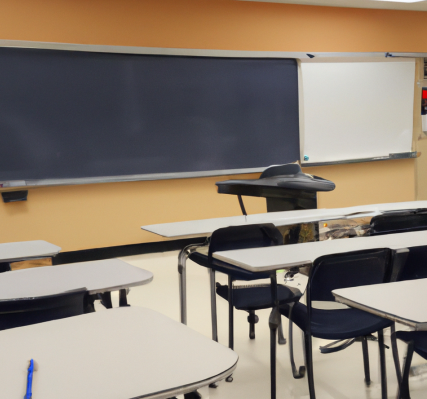All students deserve a high-quality education, regardless of where they live or what background they have. If we accept this principle, we must invest in the things that have the biggest impact on achievement.
This means that school boards should focus on improving the quality of classroom instruction. After all, classroom teachers work with students every day and have a huge impact on their academic progress.
Unfortunately, it’s easy to lose sight of this fact, particularly when school divisions get larger. There’s a tendency for school divisions to expand their administration budgets and hire more consultants as they create more programs. Whether we call them instructional coaches, learning consultants, or program directors, many certified teachers no longer spend much time in the classroom.
There’s also the unspoken assumption that being a classroom teacher is a lower status job than working as a coach, consultant, or director. It’s commonly assumed that the best classroom teachers should transition out of the classroom and focus instead on training other teachers.
However, this approach is misguided. The reality is that the best classroom teachers have a hugely positive impact not only on the students in their classroom, but on the overall school environment. In other words, they can be leaders without leaving the classroom.
Fortunately, it looks like the new chief superintendent of Winnipeg School Division (WSD) understands this. Matt Henderson was appointed to the role last year and he has been making significant changes to the largest school division in Manitoba. His latest announcement is that he intends to move dozens of teachers out of central office positions and back into classrooms.
In a memo to his entire staff, Henderson explained that he wants to “have as many master teachers working in schools as possible.” No doubt this change will ruffle some feathers. Change is hard, particularly when things have been done the same way for a long time. However, Henderson understands that his primary focus should be on improving classroom instruction—not on expanding the size of the board office.
Obviously, this doesn’t mean that there won’t be any support staff working in the board office. Every school division, including WSD, needs some people in centralized positions to support the divisional work. There will continue to be superintendents, assistant superintendents, and other key support personnel.
In addition, some teachers serve in specialized roles within schools such as guidance counsellors and resource teachers—not to mention principals and vice-principals. Some of the teachers currently in central office positions will likely move into these specialized roles. But even then, this will benefit students since these master teachers will become part of a school community and positively impact the schools they serve in.
In short, Henderson’s announcement marks an important shift away from taking the best teachers out of classrooms and reassigning them to office jobs. Hopefully other school boards take note of what is happening in WSD and consider making a similar change. The best teachers belong in classrooms, not in offices.
It’s often said that we need to keep the main thing the main thing. When it comes to education, the main thing is the classroom. That is where we can have the biggest impact on student achievement.
Simply put, focusing on the classroom is always a good idea.
Michael Zwaagstra is a public high school teacher and a Senior Fellow at the Frontier Centre for Public Policy.



